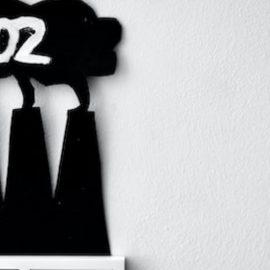
Is deflation in America a good or bad thing? How does it impact American households and the broader economy?
In mid-November, Walmart CEO Doug McMillon and investor Cathie Wood flagged the potential of a deflationary period in the US, citing shifting consumer behavior and falling prices. Deflation, while promising lower prices for consumers, can signal a slowing economy and lead to wage cuts, job losses, and potentially a recession.
Here’s a look at what deflation would mean for US citizens.
Deflation in the US
Before we discuss deflation in America, what exactly is deflation? Deflation is a continuing drop in prices across all economic sectors stemming primarily from either a decline in demand or an increase in supply. A decrease in overall demand can result from factors including:
- Monetary policy changes. When the Federal Reserve raises interest rates, people may choose to save rather than spend their money and refrain from taking out loans.
- Loss of consumer confidence. Negative economic events, such as a worldwide pandemic or fears about the economy or job security, can prompt people to spend less and save more.
Deflation Impacts
Millions of Americans, weary from relentless inflation and soaring costs for grocery and fuel, might initially embrace deflation, lured by its promise of lower prices. However, economists caution that deflation often signals a slowing economy where businesses are forced to slash prices to offload inventory, which is sometimes a prelude to a recession.
Thus, deflation creates a tricky situation for American households: On the one hand, their money can go further on essentials like milk and eggs. On the other, deflation can also shrink their incomes and lead to layoffs.
Furthermore, the interconnected elements of deflation can trigger a downward cycle: As prices drop, production decreases. This can lead companies to lower wages, causing a fall in demand and further decline in prices, starting the cycle anew.
Potential Deflation Warning Signs
In mid-November, Walmart CEO Doug McMillon and Ark Investment Management founder Cathie Wood raised the alarm about a potential deflationary period ahead for the US economy. They pointed to changes in the market and consumers’ purchasing habits and the response of several sectors to current economywide patterns.
- Inflation in the US has started to decline, now at just 3.2% annually, down from 7.7% in 2022.
- Customer behavior is shifting in retail, suggesting declining demand.
- Retail prices are dropping. Prices on many goods and services in the US have fallen in the past year, including those for gas, airfares, and smartphones.
- Grocery prices mirror the deflationary trend. After a post-pandemic rise of up to 24%, prices have since increased by just 2% since January.
However, not all experts view this potential deflationary period with alarm. Some argue deflation is a common pattern in retail and it doesn’t necessarily signal a broader economic downturn. They separate this deflation from the type that hampers macroeconomic activity and argue that a moderate drop in goods prices could stabilize prices in the economy overall. This may even set the stage for lower interest rates in the future.
Addressing Deflation
The US government has several strategies to combat deflation:
- The Federal Reserve can:
- Increase the money supply to encourage spending, typically done by purchasing securities.
- Halt interest rate hikes to prevent a shock to the economy and reduce interest rates to stimulate spending and economic activity.
- Lawmakers can stimulate economic growth by reducing taxes or increasing government spending.
Looking Ahead
While a period of declining prices is far from certain at this point, the early warning signs of deflation may now be significant enough that the possibility can no longer be ignored.






